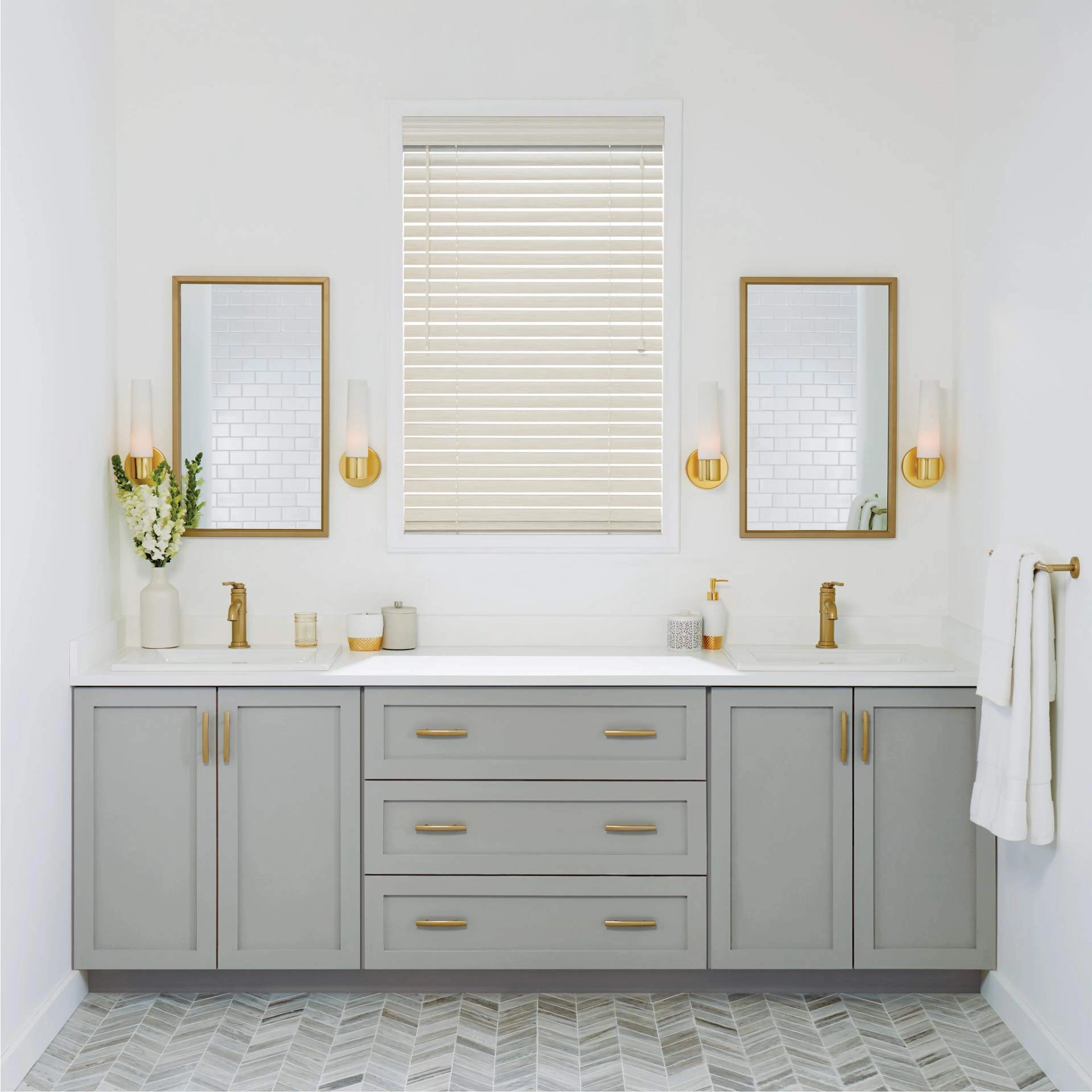Real Wood vs Faux Wood: Which is Best for Your Home
The battle between real and faux wood has been ongoing for years. Fortunately, the decision is one of personal preference. Each has pros and cons you need to consider before purchasing. We’ve put together the low down on both types to help you choose.

Materials
Wood blinds, like Parkland® Wood Blinds, are made from authentic hardwood, such as cherry, oak, and various other kinds of wood. Hunter Douglas ensures the wood is harvested using sustainable practices, and a donation is made to the Arbor Day Foundation with every Parkland® Wood Blinds purchase. They add warmth and classic beauty to any room. EverWood® Alternative Wood Blinds are made using a durable wood alternative that won’t age over time. EverWood® blinds deliver a wood-like appearance without any of the usual maintenance.
Aesthetics
The appearance of your blinds is one of the most prominent factors in choosing a material. Genuine hardwood blinds feature a rich, grainy texture that any faux wood variety cannot replicate. Parkland® blinds receive advanced finishing technology to help them maintain their luster and beauty for years to come. You can choose from various stains or solid paint colors in shades of white, gray, and neutral tones that blend seamlessly with today’s popular furniture and cabinetry. Faux wood can be stained with wood-like colors but will still appear artificial unless you buy a premium quality brand with high-end finishes. EverWood® Alternative Wood Blinds are available in a wide selection of solid colors, or TruGrain® finishes that provide the most realistic stain-like appearance in the industry.
Applications
The placement of your blinds is another element to consider. Natural wood is excellent for offices, living rooms, and other spaces where a warm, luxurious look is sought. Authentic wood blinds absorb heat and cold more efficiently than faux wood. This makes them helpful in regulating interior temperatures. Faux wood is not susceptible to moisture damage like natural wood. EverWood® blinds can stand up to high humidity and UV exposure. They are guaranteed never to fade, yellow, peel, or warp, making them ideal for kitchens, bathrooms, and homes in hot, humid climates.
Upkeep
You will need to decide how much care and attention you’re willing to give to your blinds. Any item made of natural wood, including window blinds, requires significantly more upkeep than faux wood. They need regular dusting with a microfiber cloth and treatment with lemon oil or quality furniture polish to prevent warping and cracking. Think of it as a moisturizer for your window treatments. Faux wood blinds, on the other hand, are very low maintenance. Dust them with a soft cloth, and use a solution of warm water and a mild detergent to clean any stubborn dirt or fingerprints.
The Verdict
No one else can decide which type is right for you and your home. It boils down to personal preferences and how you want to use them. Real wood is the only way to go if you want a sophisticated aesthetic and blinds that add visual interest and character. For those seeking a more budget-friendly option that’s low maintenance, faux wood is your go-to. Regardless of which type you choose, you can’t go wrong with blinds from Hunter Douglas. The superior materials and craftsmanship are unmatched by any other manufacturer.
Contact Us
Are you still undecided between genuine and faux wood? Our team of design professionals here at Delux Drapery & Shade Co. are here to help you find the perfect window treatments for your home. We are located at 2215 W Stadium Blvd, Ann Arbor, Michigan, and would love for you to stop by anytime during our business hours. You can also call us at (734) 662-6524 or request a consultation online to get started with your next home window treatment project.
